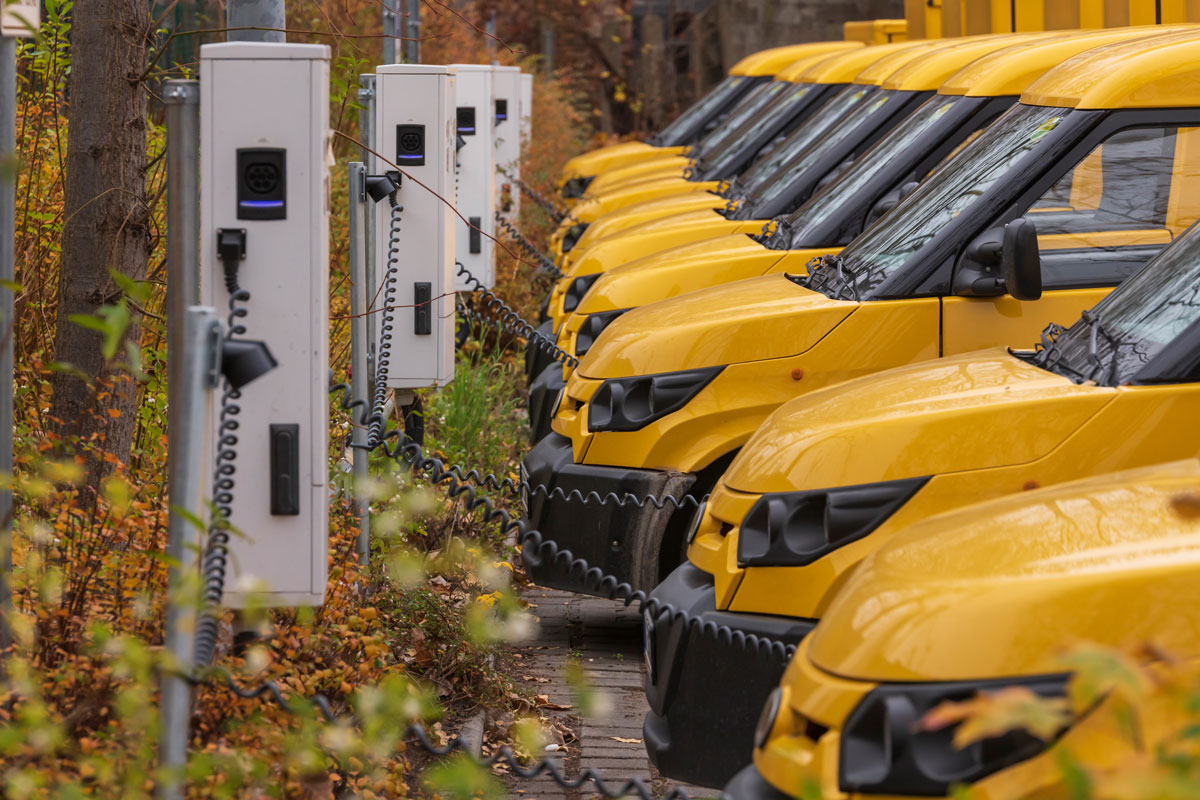Perfect pairing: Actual Energy and fleet electrification. With wholesale pricing and real-time data, procuring electricity from Actual Energy enables companies to manage electricity supply, costs, and efficiency for expanding electric vehicle fleets. Actual Energy’s in-house Energy Advisory Services Group (EASG) and signature notification system, Actual Alerts, optimize fleet operating costs and reduce environmental impact.
Electric vehicles are becoming increasingly attractive to businesses for several key reasons. First, companies are looking to improve the sustainability of their business models and align with environmental targets and policies. Second, electric vehicle prices are decreasing as more models come to market. Lastly, the expansion of electric charging infrastructure will enable easier access to low-cost charging opportunities.
With Actual Energy, EV fleet integration is easy. By partnering with us, businesses with electric vehicle fleets can reduce costs of both operational electricity use and fuel. Actual Energy can provide low-cost electricity pricing for fleets such as school buses (shout-out to Beverly, MA), municipal vehicles (another shout-out to Portland, ME), and electric airplanes (final shout-out to Hyannis, MA) because charging typically takes place at the lowest demand time: overnight. Most electricity suppliers offer fixed pricing, so when a fleet vehicle is plugged in at the end of the day, the customer doesn’t benefit from lower off-peak pricing. With Actual Energy, customers pay the wholesale price, and therefore are able to take advantage of low overnight pricing, all year long. In the unlikely event of a price spike or a carbon-intensive grid, Actual Alerts (price, peak, and carbon notifications) are sent directly to customers’ smartphones. For businesses that utilize smart charging stations such as JuiceBox, Actual Energy’s platform enables the charger’s cloud-based software to fully optimize usage and price by integrating with the utility.
The electric vehicle market in the US has reached an inflection point. The Biden Administration, in its American Jobs Plan, formalized federal agencies’ transition to zero-emissions vehicles; General Motors recently announced plans to make all passenger vehicles electric by 2035; and Toyota will debut its first mass-market EVs in the US later this year. With Nikola, Tesla, Toyota, Volvo, and Daimler releasing electric semis over the next few years, commercial uptake will drive the US towards greener supply chains.
Here in New England, the future is bright for EV fleets. Regional and state initiatives are driving the change from fossil fuel-based transportation to electrification through programs such as the Transportation and Climate Initiative and the Climate Mayors Electric Vehicle Purchasing Collaborative. EV fleet deployment will begin to address the transportation sector’s contribution to GHG emissions (which, according to the EPA, is ~28%). ISO New England, our region’s grid operator, has included fleet growth in its CELT Forecast (Capacity, Energy, Loads, and Transmission). In the near future, end-users will be able to use their electric batteries to send electricity back into the grid (V2G – “vehicle to grid”) and offset peak demand usage. This may be the one key advantage companies have not previously considered: the ability to utilize the electricity storage facility supplied by the electric vehicle itself. With a grid increasingly dependent on variable generation sources, battery electric storage systems (or electric vehicles) have the potential to radically change the way businesses in the US not only consume but generate electricity (1).
Fleet electrification is an all-around win. Along with reduced emissions, cleaner air, improved grid infrastructure, and lower-cost fuel consumption, having Actual Energy as your electricity supplier and a trusted advisor will make the EV journey forward-thinking, environmentally impactful, and economically advantageous.




